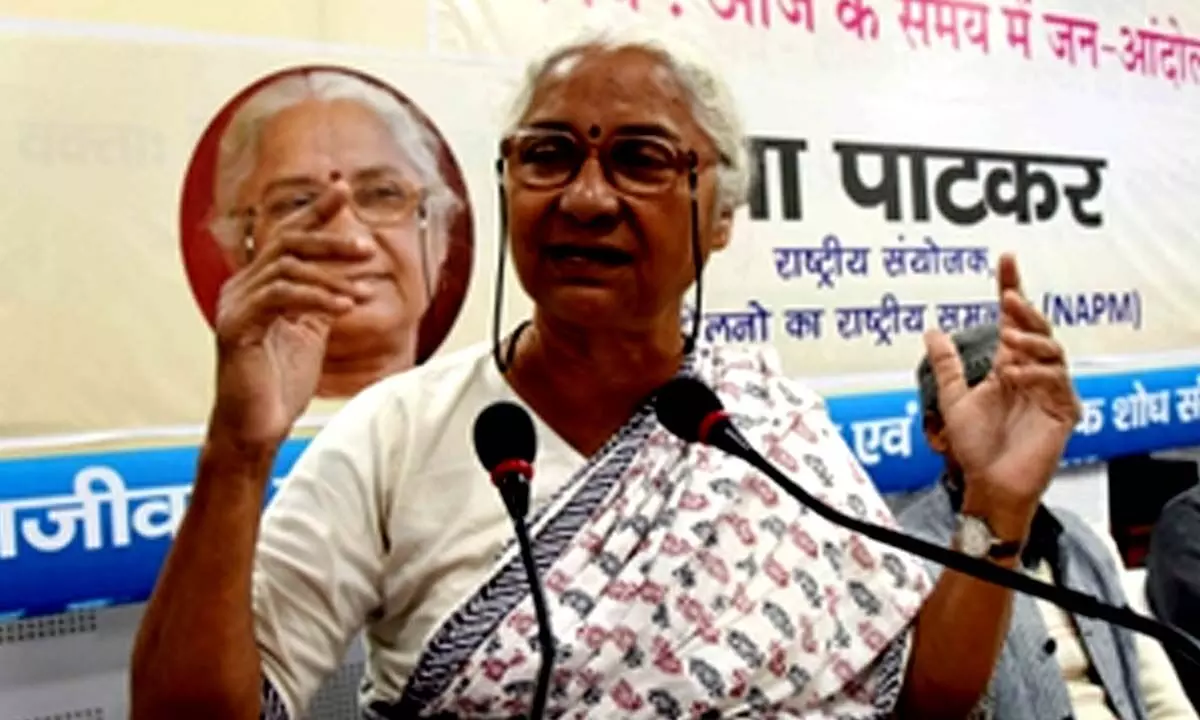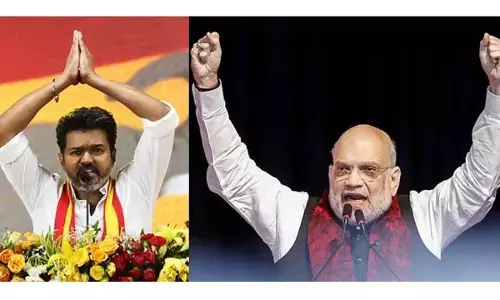Defamation Suit: Delhi court hands Medha Patkar 5-month jail term, Rs 10 lakh fine
Share :

A Delhi court on Monday sentenced activist Medha Patkar, the leader of the Narmada Bachao Andolan (NBA), to five months of simple imprisonment in a criminal defamation case initiated against her by V.K. Saxena in 2001.
New Delhi: A Delhi court on Monday sentenced activist Medha Patkar, the leader of the Narmada Bachao Andolan (NBA), to five months of simple imprisonment in a criminal defamation case initiated against her by V.K. Saxena in 2001.
Saxena currently serves as the Lieutenant Governor of Delhi.
Announcing the sentence, Metropolitan Magistrate Raghav Sharma of the Saket Court also ordered Patkar to pay Rs 10 lakh as compensation to Saxena for the harm caused to his reputation.
Advocates Gajinder Kumar, Kiran Jai, Chandra Shekhar, Drishti, and Somya Arya appeared for Saxena in the court.
Gajinder Kumar told IANS that a request was made to the court to allocate the compensation amount to the Delhi Legal Services Authority (DLSA).
Patkar was found guilty by the court on May 24 of criminal defamation under Section 500 of the Indian Penal Code.
Saxena had filed the case against Patkar in 2001 when he was the Chief of the National Council for Civil Liberties, an Ahmedabad-based NGO.
During the last hearing, the parties concluded their arguments in the matter of sentencing. Saxena, the complainant, had submitted written arguments stressing the necessity of imposing the maximum sentence on Patkar. The submission cited several critical points to support his call for stringent punishment.
Firstly, the 'criminal history' and 'antecedents' of Patkar were brought to the court's attention, showcasing a persistent defiance of the law that is a "characteristic of the accused".
This defiance was further evidenced by the admonishment of the NBA by the Supreme Court for false pleadings. The seriousness of the offence of defamation was also stressed upon, equating it with 'moral turpitude'.
Such a 'serious offence', argued the complainant, called for stringent punishment, especially as there is no evidence that Patkar respects the law.
Patkar was identified as a 'habitual offender' by the complainant, citing another defamation case from 2006 that is still pending adjudication before the court.
The complainant had also claimed that Patkar shows no concern for social control and defies ethical and moral justifications, aggravating circumstances that indicate her culpability based on her past conduct and 'criminal history'.
The submission had concluded that a deterrent punishment was necessary, adding that the "maximum sentence should be imposed to deter Patkar and set an example in the society, discouraging others from engaging in similar acts that hinder the country's development".
The defamation case stems from a series of legal disputes that began in 2000. At that time, Patkar filed a suit against Saxena for publishing advertisements that she claimed were defamatory towards her and the NBA.
In response, Saxena filed two defamation cases against Patkar -- one for alleged derogatory remarks she made about him during a television appearance, while the second case involved a press statement issued by Patkar.
While convicting her, Magistrate Sharma noted that Patkar made and published imputation that the complainant had visited Malegaon, praised the NBA, had issued a cheque of Rs 40,000, which came from Lal Bhai Group, and that “he was a coward and not a patriot".
Magistrate Sharma had noted: “The accused by publishing the above imputation intended to harm or knew or had reason to believe that such imputation will harm the complainant's reputation.”
Passing the order for her conviction, Magistrate Sharma said that reputation is one of the most valuable assets a person can possess, as it affects both personal and professional relationships, and can significantly impact an individual's standing in society.














